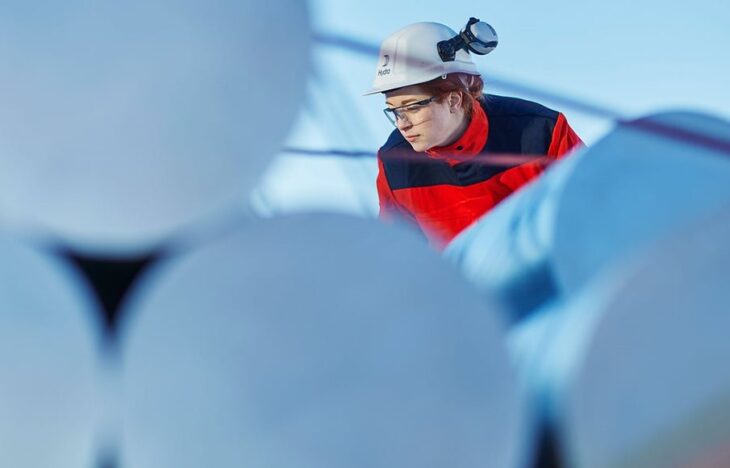Hydro is working with Nuvosil, a circular economy start-up based in Norway, to launch an industrial pilot project on new technologies for the recycling of aluminum and silicon. The aim of the project is to significantly reduce energy consumption and processing costs.
The Low Energy Recycling (LER) project is being developed by consortium partners Hydro and Nuvosil, as well being supported by research and industrial partners SINTEF in Norway, Norwegian University of Science and Technology (NTNU), CEMTEC in Austria, and Reifenhauser in Germany. In addition, Enova has followed the development of LER technology for a long time and is now supporting the project with NOK 9.4 million (US$1.1 million).
“We are very pleased with the support from Enova,” siad Bjørn-Olav Brelin, CEO of Nuvosil. “Even with the very promising operational and financial prospects of the LER technology, Enova’s financial contribution and risk sharing has been crucial for the realization of this project.”
The LER Project
The project is working on two product paths. One is recycling of aluminum, focusing first on process scrap from machining primary foundry alloys and related products like car rims. The other is a combination of aluminum and silicon scrap from production of wafers used in solar panels.
Both of these will employ a screw extrusion process, in which the aluminum scrap alone or in combination with the silicon pellets are fed into a screw-driven extrusion press. Developed by Hydro and NTNU in Trondheim, Norway, the LER technology has been verified on a laboratory-size extruder at NTNU. Hydro is the owner of the technology and holds the patent for its use on metal materials.
The process has the potential to use up to 90% less energy than conventional recycling, resulting in a similar reduction in CO2 emissions. The reduced energy consumption also provides for a significant reduction in processing costs.
“The technology greatly reduces energy consumption, and significantly increases the recycling rate,” said Ståle Kvernrød, senior adviser at Enova. “Enova believes that technology of this type is needed to reach a low-emission society and eliminate greenhouse gas emissions by 2050.”
During the LER project, the partners aim to build, test, and qualify a commercial-scale version of the extruder, in addition to confirming scalability of other associated components and process steps. The technology is expected to be tested in one or more of Hydro’s plants in Norway, with production of Hydro CIRCAL, a low-carbon extrusion ingot, as one potential application area.
“We are very encouraged to kick off the industrialization of the Hydro laboratory screw-extruder technology, which has been tested in a range of R&D projects in close collaboration with NTNU in Trondheim,” said Trond Furu, research manager in Hydro’s Corporate Technology Office.
The LER project is expected to run through 2021.

